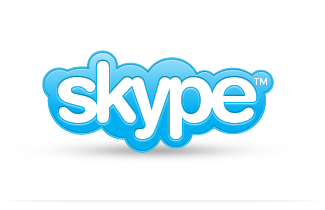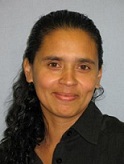Did you know there are selected websites you have free access to? These websites are known as mirror sites.
In computing, a mirror is an exact copy of a data set. On the Internet, a mirror site is an exact copy of another Internet site. Mirror sites are most commonly used to provide multiple sources of the same information, and are of particular value as a way of providing reliable access to large downloads. Mirroring is a type of file synchronization and a live mirror is automatically updated as soon as the original is changed.
But why the need for more than one version of the same website. A few reasons are:
- To preserve a website or page, especially when it is closed or is about to be closed.
- To allow faster downloads for users at a specific geographical location. For example, a U.S. server could be mirrored in Japan, allowing Japanese Internet users to download content faster from the local Japanese server than from the original American one.
- To provide access to otherwise unavailable information. For example, when the popular Google search engine was banned in 2002 by the People’s Republic of China, the mirror elgooG was used as a way of effectively circumventing the ban.
- To preserve historic content. Financial constraints and/or bandwidth prevent the maintainers of a server from keeping older and unsupported content available to users who still may desire them; a mirror may be made to prevent this content from disappearing.
- To balance load. If one server is extremely popular a mirror may help relieve this load this server may become overloaded with demand. Alternative download points allow the total number of download requests to be spread among several servers, maintaining the availability of the distribution.
- As a temporary measure to counterbalance a sudden, temporary increase in traffic.
SOURCE: www.wikipedia.org
Therefore, before you download huge files from an international server and run up an exorbitant internet account, check whether there is a local version available. The following websites are available to you free of charge:
A large amount of software downloads are available at http://support.sun.ac.za
MIT OpenCourse Ware: http://ocw.sun.ac.za
Mirror server for linux: http://ftp.sun.ac.za
Mirror services available for free via TENET: http://www.mirror.ac.za
The most popular Linux distros are available (Ubuntu,Debian, Fedora, Opensuse, Mandriva etc.)
Complete programming language mirrors are availabla at:
CPAN (perl): http://ftp.sun.ac.za/ftp/pub/mirrors/ftp.funet.fi/pub/languages/perl/CPAN/
CTAN (Tex/Latex): http://ftp.sun.ac.za/ftp/pub/mirrors/ftp.dante.de/tex-archive/
Python: http://ftp.sun.ac.za/ftp/pub/mirrors/ftp.python.org/
Mathematical languages:
SageMath: http://ftp.sun.ac.za/ftp/pub/mirrors/www.sagemath.org/
Scilab (http://ftp.sun.ac.za/ftp/pub/mirrors/scilab/www.scilab.org/
R http://ftp.sun.ac.za/ftp/pub/mirrors/cran.za.r
Octava http://ftp.sun.ac.za/ftp/pub/mirrors/octave
Opensource software:
sourceware.org: http://ftp.sun.ac.za/ftp/pub/mirrors/sourceware.org/pub/
Free Office packages:
LibreOffice: http://ftp.sun.ac.za/ftp/pub/mirrors/libreoffice/
OpenOffice: http://ftp.sun.ac.za/ftp/pub/mirrors/openoffice/
Downloadable antivirus updates:
Mcafee: http://ftp.sun.ac.za/ftp/pub/mirrors/ftp.nai.com/
Symantec: http://ftp.sun.ac.za/ftp/pub/mirrors/ftp.symantec.com
/public/english_us_canada/antivirus_definitions/norton_antivirus/
Adobe Reader: http://ftp.sun.ac.za/ftp/pub/mirrors/ftp.adobe.com/
SOURCE: www.wikipedia.org
 Every day we’re bombarded by an enormous amount of information, of which only a small percentage is relevant to us. It’s no wonder then that we struggle to distinguish between the useful and useless.
Every day we’re bombarded by an enormous amount of information, of which only a small percentage is relevant to us. It’s no wonder then that we struggle to distinguish between the useful and useless.

 Previously you could only reach us by phone or e-mail, then you could follow our blog and tweets.
Previously you could only reach us by phone or e-mail, then you could follow our blog and tweets. Every 90 days you receive an email from
Every 90 days you receive an email from  The responsibility of managing the successful integration of services and continuous support on campus rests on the shoulders of Zenobia Davidse and her team of 26.
The responsibility of managing the successful integration of services and continuous support on campus rests on the shoulders of Zenobia Davidse and her team of 26.